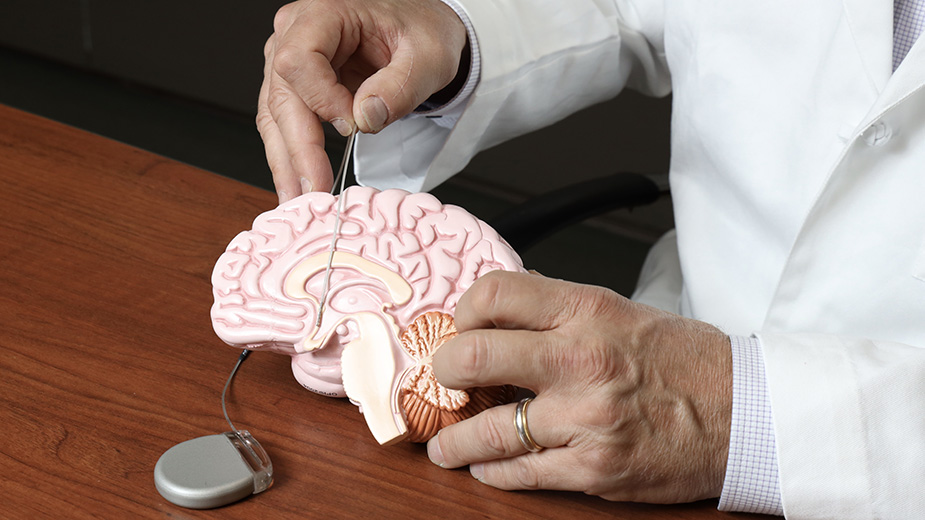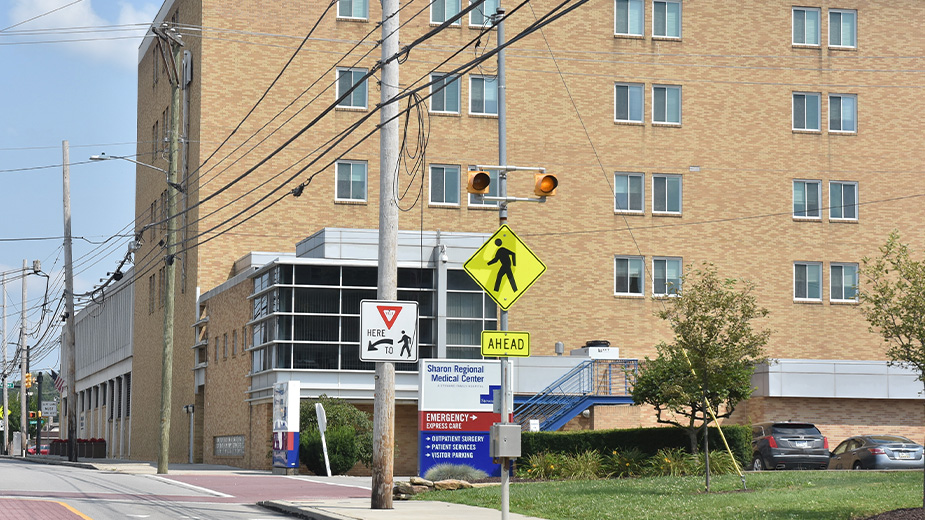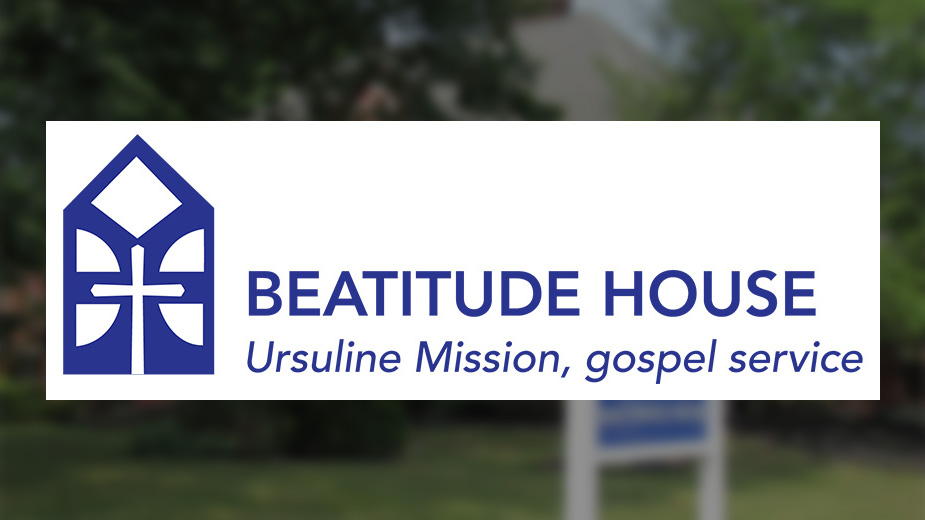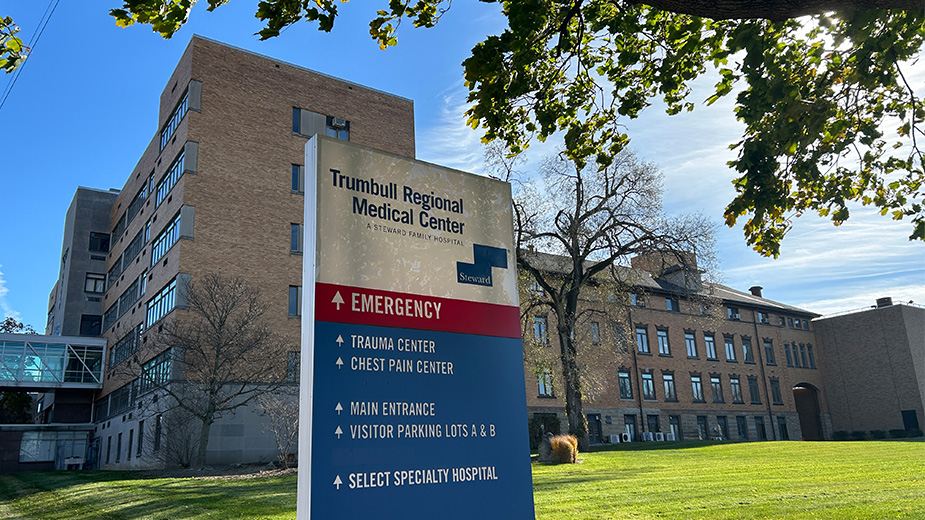AHN Team Explores Deep Brain Stimulation for Opioid Addiction
PITTTSBURGH – A team of physicians at Allegheny Health Network today announced the launch of an important pilot study exploring the use of deep brain stimulation (DBS) therapy to treat opioid addiction.
In collaboration with Mark Fuller MD, executive director of the AHN Center for Recovery Medicine, the study has been designed by Nestor Tomycz, MD, director of stereotactic and functional neurosurgery at AHN, and will enroll three patients with refractory opioid use disorder (OUD).
Opioid misuse remains one of the nation’s leading public health problems, killing tens of thousands of people each year, and causing more than 100,000 deaths over a recent 12-month period, according to data from the Centers for Disease Control and Prevention.
“In the last decade, drug addiction, and opioid abuse in particular, has stolen far too many lives, shattering families and putting enormous strain on communities and our health care system,” said Dr. Fuller. “We need additional solutions and resources to help turn the tide of this deadly crisis, and that’s why we are exploring the potential of a pioneering capability like DBS for those patients who fail conventional treatments.”
DBS for opioid use disorder involves implanting bilateral brain electrodes into an area of the brain called the nucleus accumbens. The electrodes are powered by a pacemaker-like device implanted near the patient’s collarbone.
“Drug addiction is a disease that leads to changes in how the brain is wired, particularly the nucleus accumbens. This small structure in the brain has been strongly associated with cravings for various drugs and is believed to be responsible for drug relapse even after prolonged periods of abstinence,” said Tomycz. “Stimulating this structure with mild electrical pulses via DBS has been shown in a small case series to reduce cravings and the chance of drug relapse, and we are among a few centers in the United States further advancing the study of this treatment.”
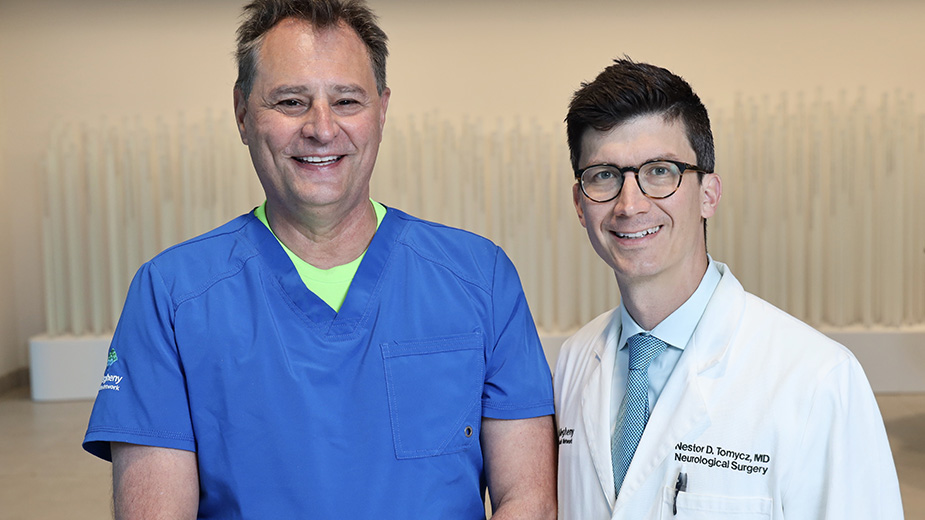
DBS has become a well-established treatment for movement disorders such as Parkinson’s disease. Under the leadership of Donald Whiting, MD, chair of the AHN Neuroscience Institute and AHN chief medical officer, Allegheny General Hospital has become a top national center for DBS treatment and research. Whiting and Tomcyz are also among a handful of U.S. medical teams assessing the efficacy of DBS for the treatment of obesity and Alzheimer’s disease.
“DBS has proven to be one of the great breakthroughs in the treatment of neurological disease over the past couple of decades, providing life changing relief from debilitating conditions for thousands of people,” said Whiting. “As we continue to learn more about areas of the brain and brain mechanisms connected to specific diseases, the possibility of targeting those structures and processes via DBS is something we are intently focused on in our Institute.”
By stimulating the nucleus accumbens, DBS is believed to prompt the release of natural dopamine, reducing cravings, improving decision making and curbing impulsivity. Some evidence also suggests the treatment may reverse physical changes to the brain caused by years of drug use.
“Rather than cure addiction, DBS may enable us to rewire the brain to allow the individual to respond better to traditional treatments along their journey to recovery,” Fuller explained. “But it’s important to underscore that DBS is not yet a proven treatment for addiction. We are in the early stages of research that will determine its efficacy.”
Pictured at top: Dr. Don Whiting demonstrates placement of electrodes in the brain Neurostimulator device that is implanted into the patient’s chest.
Published by The Business Journal, Youngstown, Ohio.
